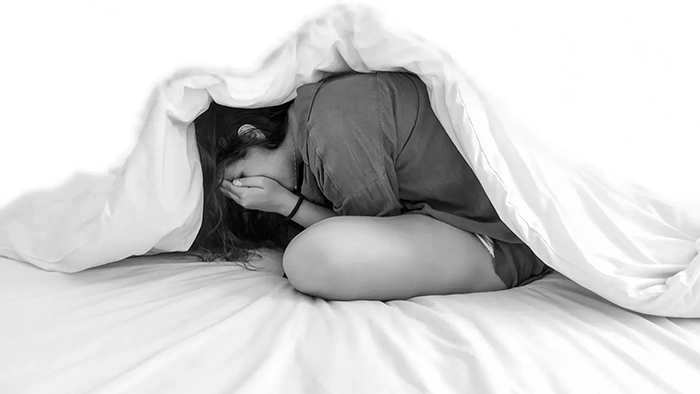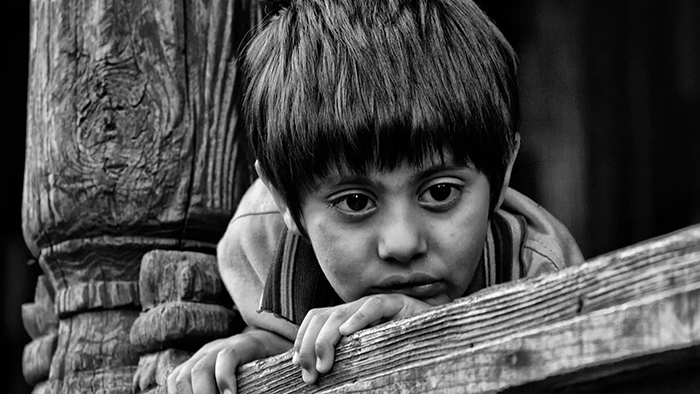- Below 5 Years Of Age
- 6-10 Years Of Age
- 11-14 Years Of Age
- 15+ Years Of Age
Introduction
Various reasons and specific societal and environmental problems affect children, too. It is surely difficult to believe that children even below the age of 10 nowadays have serious signs of anxiety and panic. It has become more than essential for parents to be responsible for guiding children towards better mental health and a healthy lifestyle.
Uncountable aspects of children's lifestyles can trigger a state of anxiety without even parents knowing. Sadly, one cannot control the outer environment but protect children's mental health by recognizing early signs of anxiety.
Keep on reading to know more about anxiety and children.
What Is Anxiety?

The state of anxiety cannot be described in a specific definition. Children can feel anxious and have lots of feelings stuffed. In simple words, anxiousness is a state where children are often irritated, sad, or depressed, which results in a constant state of panic and nervousness.
It can also pressure children to overthink, which can cause various physical and mental problems. Childhood anxiousness can also affect children when they grow up, resulting in childhood drama and childhood triggers.
Parents should always be careful around children, looking for signs of anxiousness. Any type of fear or nervousness instigated in a child should be noticed beforehand to manage the problem.
Is There A Specific Age For Anxiety In Children?
Sadly, there is no specific age for anxiety in children. Children can face different types of anxiousness throughout their childhood. The reasons for anxiousness that instigated the children's panic or fear can be countless. It can be a silly fear of the dark that instigates anxiousness in children even when they are older. Or it can also be a bad environment while growing up, which makes the children anxious even when they are old. Know more about how and why children can feel anxious and the signs to recognize it.
Reason A Child Feels Anxious
Here are some common reasons that make the child feel anxious, triggering a state of fear, panic, and nervousness.
Below 5 Years Of Age
Children under 5 are not mentally well-developed, which makes it difficult for them to express their emotions.
- A loud environment and long hours of staying hungry can make the child anxious.
- A sudden element of surprise can also put the child into an anxious State, scaring them.
- Any type of discomfort can also put the child into an anxious state if it is not attended to fast enough.
6-10 Years Of Age
- Ignorance from parents or childhood accidents can instigate a state of anxiety in children.
- Poor education and environment can also cause the child to stay anxious for various reasons.
11-14 Years Of Age

- Bullying is one of the major reasons for children to be anxious during these years.
15+ Years Of Age
There are lots of reasons that teenagers face when they are growing up.
- Ignorance from society
- Fear of failure
- Nervousness to perform
- Societal pressure and social responsibilities
- And many more.
How to Recognize Signs of Anxiety in Your Child
Here are some early signs of anxiety in children that parents should know about:
- Nail Biting: Nail biting is common in younger children because they are constantly nervous and in a state of overthinking. Parents must notice that children hiding something often have the habit of nail-biting during this period.
- Sweaty Palm: A sweaty palm is another sign of anxiousness or overthinking. It results from the mind being overworked due to overthinking and nervousness.
- Shivering: Highly anxious or nervous children will constantly shiver. This happens because they constantly overburden themselves with feelings that are out of their control.

- Excessive Sweating: Children who are under overwhelming pressure or burden are often seen sweating excessively because of anxiety.
- Loss Of Appetite: Anxious children can face loss of appetite because of mood swings.
- Mood swings: Mood swings are common in anxious children as there is too much going on in their minds.
- Speech Stutter: Due to overthinking and fear, children are seen stuttering while communicating with others as a sign of anxiousness.
- Memory Loss: Anxiety can also cause memory loss. A child's inability to forget simple things indicates their anxious mind.
- Obsessive Disorders: Various kinds of disorders, such as OCD, ODD, and more, can be seen in teenagers when they are always in an anxious state.
- Binge Eating: Binge eating is another coping mechanism that keeps an individual busy. It is a common mechanism for teenage girls.
- Emotionally unavailable or scared to share: Most of the children who are in the anxious state or are suffering from severe anxiety are emotionally unavailable or scared to share or communicate with parents and friends.
How To Calm Anxiety In Children?
It is essential for parents to quickly assess such a situation and provide guidance and help needed to children by initiating open conversation and support. Children in an anxious state are easily scared and very sensitive, and parents should move cautiously. Parents can approach child counseling to help the children in severe cases.
Conclusion
Many reasons can trigger anxiousness, and there are plenty of signs for parents to understand and notice. Anxiousness should be treated with the love and care every child deserves, regardless of incidents instigating fear.
Smriti is a content writer who creates clear, practical, and informative content backed by science and relevant data. With a strong understanding of structured writing, she breaks down complex topics into simple, actionable insights. Her work is focused on helping readers prepare, learn, and grow with confidence and clarity.
The views expressed are that of the expert alone.
The information provided in this content is for informational purposes only and should not be considered a substitute for professional medical advice, diagnosis, or treatment. Always seek the advice of your physician or another qualified healthcare provider before making any significant changes to your diet, exercise, or medication routines.
References










